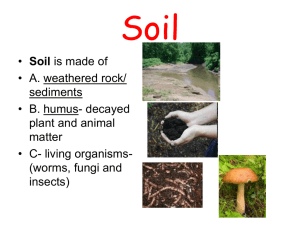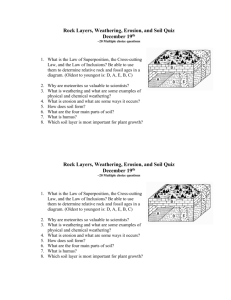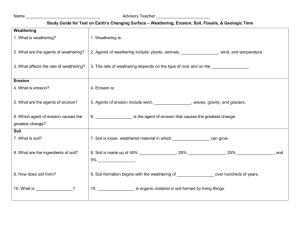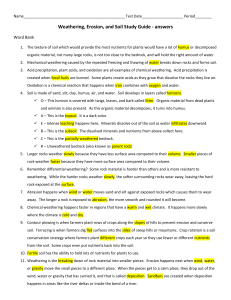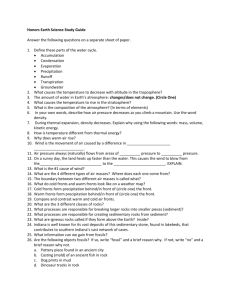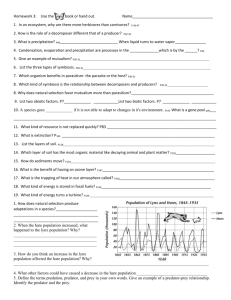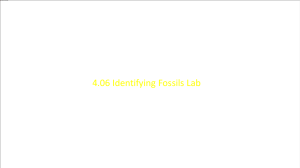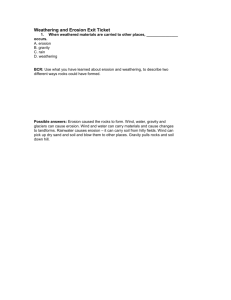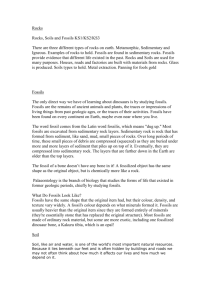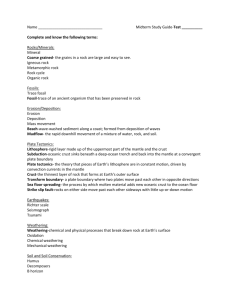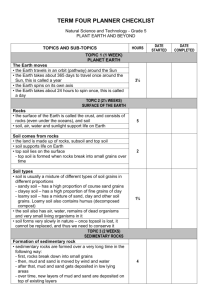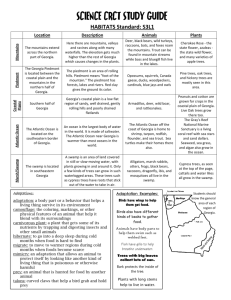WeatheringSoilsfossilsStudyguide1
advertisement
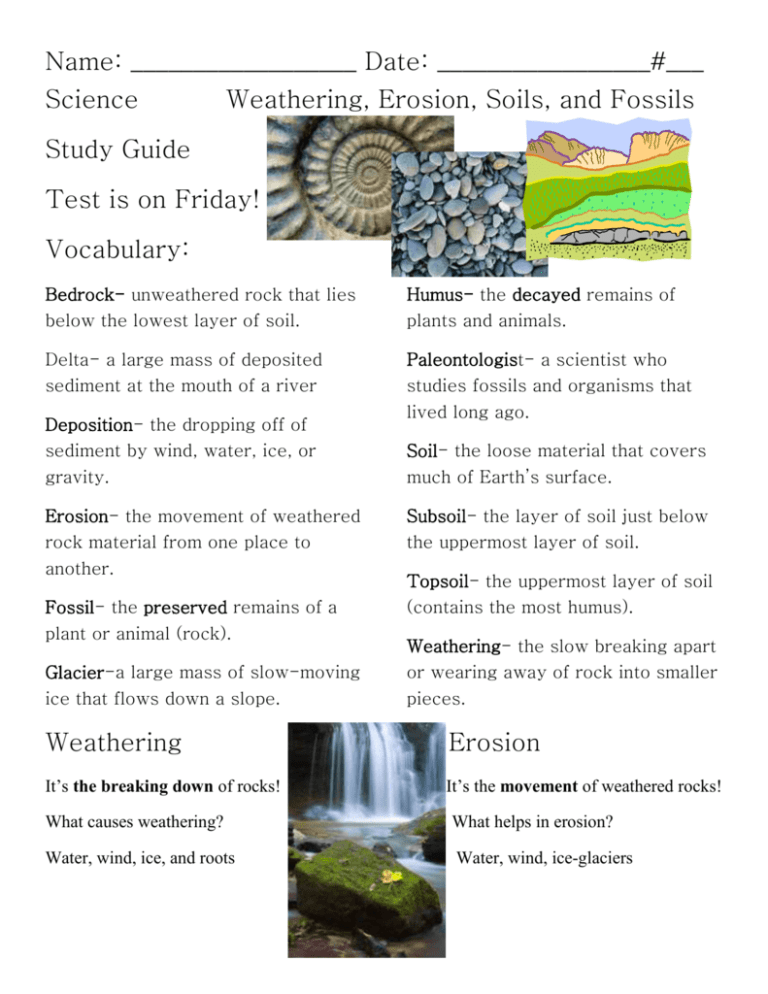
Name: __________________ Date: _________________#___ Science Weathering, Erosion, Soils, and Fossils Study Guide Test is on Friday! Vocabulary: Bedrock- unweathered rock that lies below the lowest layer of soil. Humus- the decayed remains of plants and animals. Delta- a large mass of deposited sediment at the mouth of a river Paleontologist- a scientist who studies fossils and organisms that lived long ago. Deposition- the dropping off of sediment by wind, water, ice, or gravity. Erosion- the movement of weathered rock material from one place to another. Fossil- the preserved remains of a plant or animal (rock). Glacier-a large mass of slow-moving ice that flows down a slope. Soil- the loose material that covers much of Earth’s surface. Subsoil- the layer of soil just below the uppermost layer of soil. Topsoil- the uppermost layer of soil (contains the most humus). Weathering- the slow breaking apart or wearing away of rock into smaller pieces. Weathering Erosion It’s the breaking down of rocks! It’s the movement of weathered rocks! What causes weathering? What helps in erosion? Water, wind, ice, and roots Water, wind, ice-glaciers Where does it all go? The sediments get deposited at another place- Deposition! Deltas are formed by this. The Mississippi River Delta is the largest in the US. Soil What is soil? What is in soil? Are there different types of soil? Soil is made of bits of rock (sand), minerals, and material of once living things. Humus- made of dead plants and animals (don’t get this confused with fossils!). This is the fertile stuff that plants love! It is dark brown. Types of Soils: Clay- small particles, they pack together tightly. When wet, it’s sticky and smooth with a plastic feeling. Sand- coarse particles (grains), gritty, water flows through this material very easily. Silt- soft and smooth. It is made up of smaller particles of sand. Loam- partly sticky and smooth. The darker the color, the more humus it contains. (Don’t forget to study the soil layers!) Fossils Fossils are found in rocks. Fossils help learn about the past. They give clues about the environment of that time period. Types of Fossils Molds Casts Petrified fossils Amber Loam is a type of dirt. Farmers often use it to grow crops
